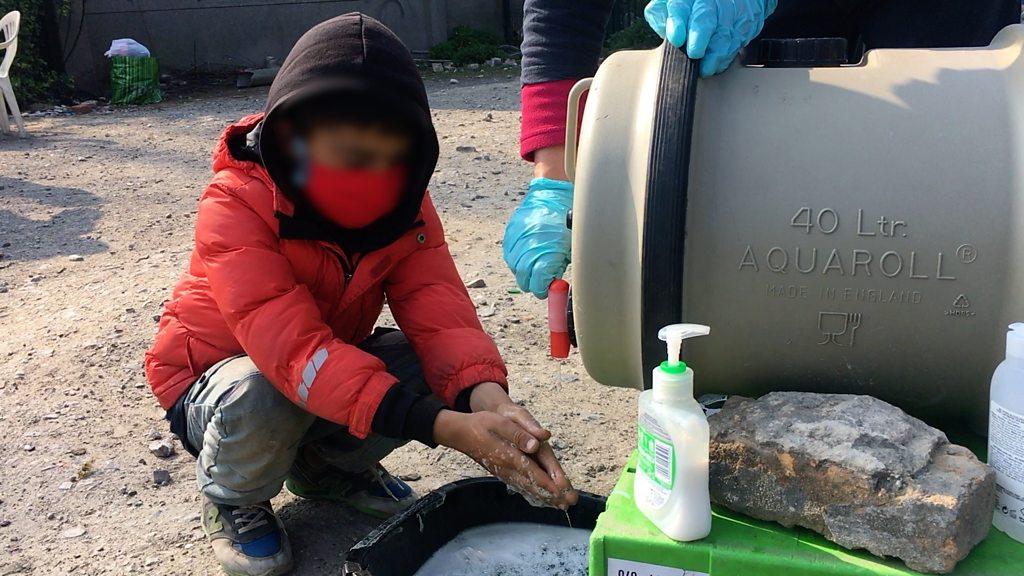Channel migrants: Rise in unaccompanied children arriving in Kent
- Published
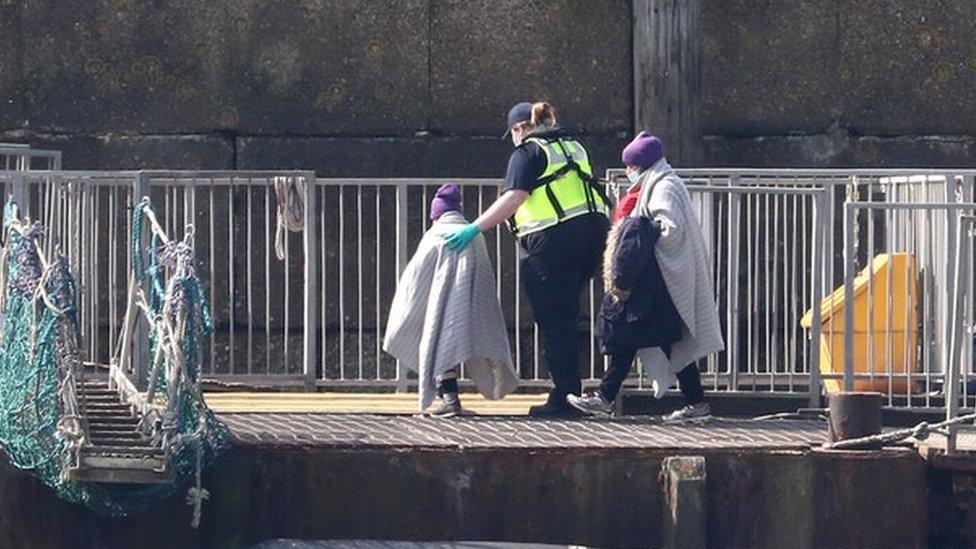
The number of children crossing the Channel in dinghies is rising, Kent County Council says
The number of unaccompanied child migrants arriving in Kent has risen significantly in the past 12 months, the county council leader has said.
Roger Gough claimed the number of young asylum seekers in the county had "doubled in a little more than a year".
A drop in lorries crossing the Channel due to coronavirus had caused a rise in children arriving in dinghies, he said.
It has led to fears children are being trafficked into modern slavery, the Immigration Services Union said.
When asylum-seeking children arrive unaccompanied in Kent, usually at Dover, they are passed into the care of the county council.
There were 450 child migrants in the council's care at the end of April, compared with 257 in April 2019.
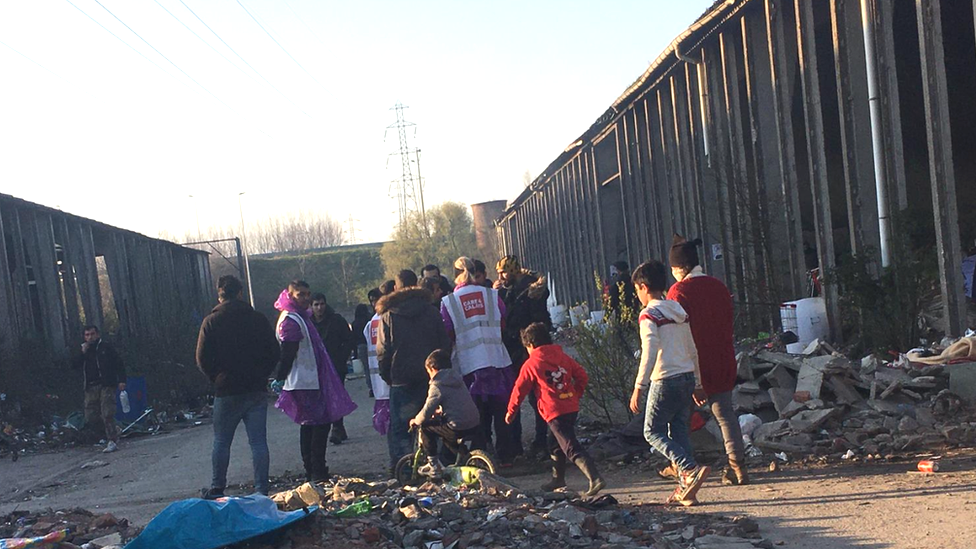
Volunteers say between 100 and 200 migrant children are camped in Calais
About 20 children arrived in small boats over the bank holiday weekend, Mr Gough said.
While stowing away on lorries had until recently been the "typical route for a young person," he said they were "to a large degree now coming in the boats".
"What we are now seeing, particularly as you can imagine all the changes with lockdowns across Europe and a significant reduction in freight transport, is that actually the boats are becoming a route for those unaccompanied asylum-seeking children."
The increase in new arrivals was putting "severe and growing pressure" on the council's finances and social care services, he said.
'Modern slavery'
Lucy Moreton, of the Immigration Services Union, said the age of children arriving unaccompanied "does appear to be dropping" and fears the journeys may be the result of human trafficking.
Smugglers usually charged between £5,000 to £10,000 per head, she said, adding: "Unaccompanied children do not have the financial resources to do this."
Ms Moreton fears organised crime groups may be "bringing the children here for the purposes of modern slavery or sexual slavery".
Newly-arrived children must be watched closely by social services and not allowed to "vanish", as has sometimes happened with older children in the past, Ms Moreton said.
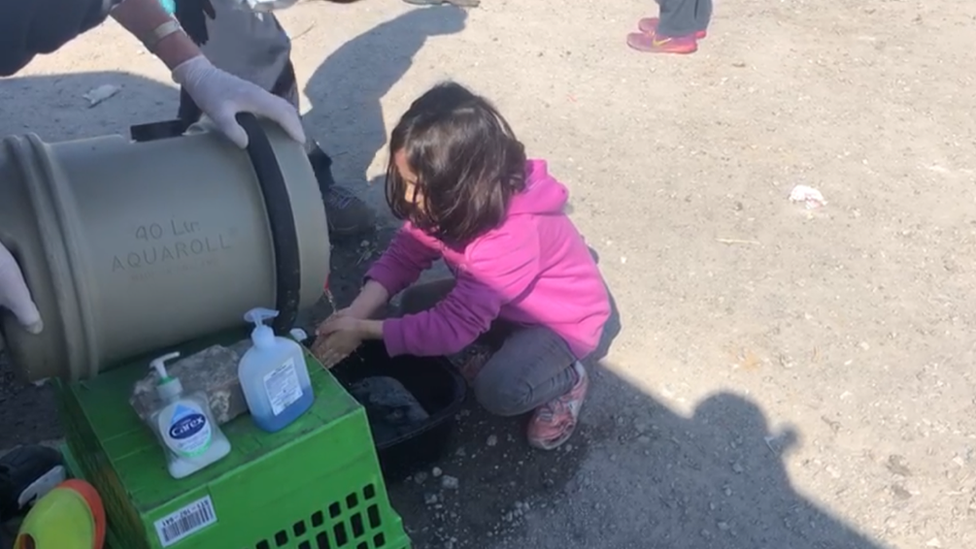
Personal hygiene in migrant camps had deteriorated, charities say
Volunteers have said conditions in makeshift migrant camps in northern France have deteriorated during the pandemic because of a reduction in charities working in the area.
Care4Calais volunteer Tia Bush said there were between 100 and 200 children living in Calais, who were mostly unaccompanied.
"The problem is the conditions have got so bad here with the virus that obviously people are more desperate to get to the UK," she said.
"They are not safe here, so they have nothing to lose," she said.
A Home Office spokesman said: "The government takes the welfare of unaccompanied children very seriously and provides funding to local authorities, including Kent, as a contribution to the cost of supporting unaccompanied children and those who leave care."
It said it was working to dismantle the "ruthless criminal gangs put people's lives in grave danger".

RISK AT WORK: How exposed is your job?
SCHOOLS: When will children be returning?
EXERCISE: What are the guidelines on getting out?
THE R NUMBER: What it means and why it matters
LOOK-UP TOOL: How many cases in your area?

- Published17 April 2020
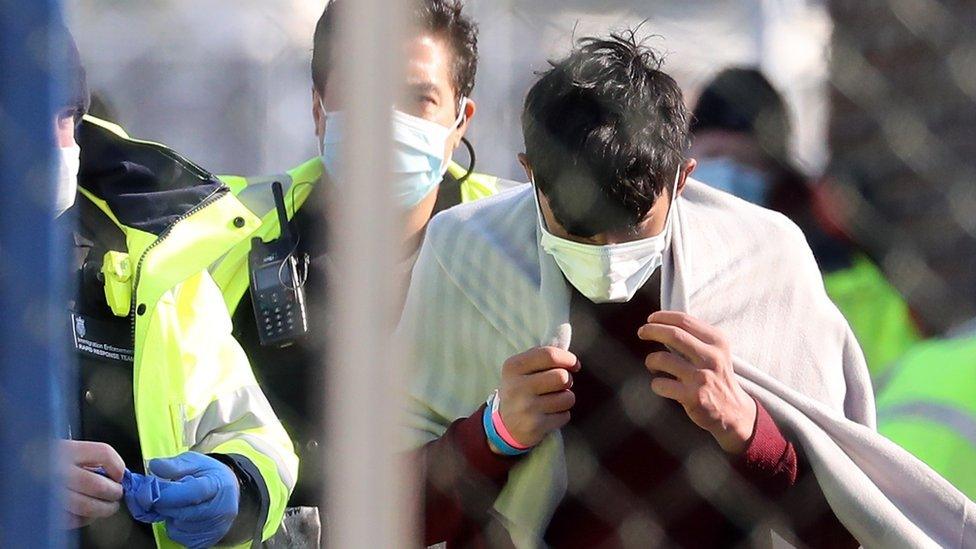
- Published9 May 2020
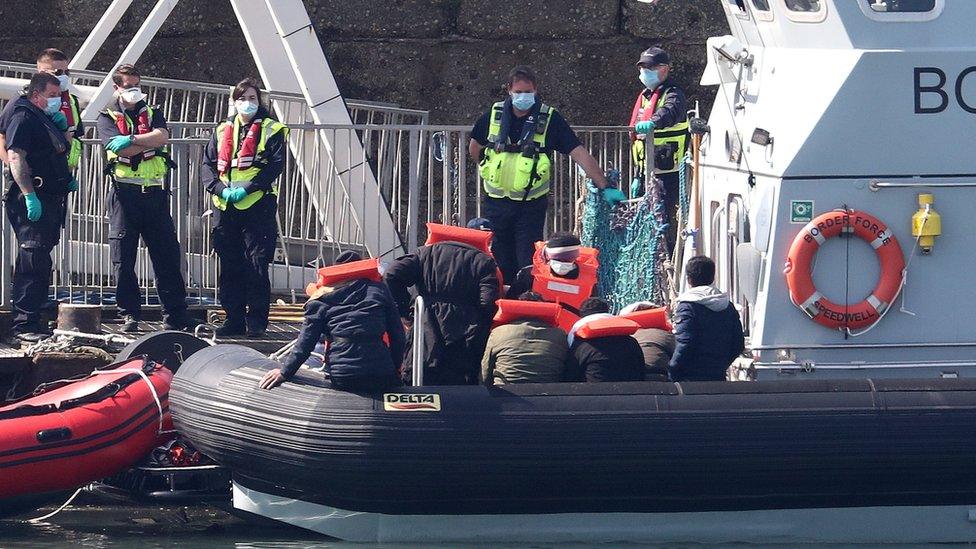
- Published10 May 2020
